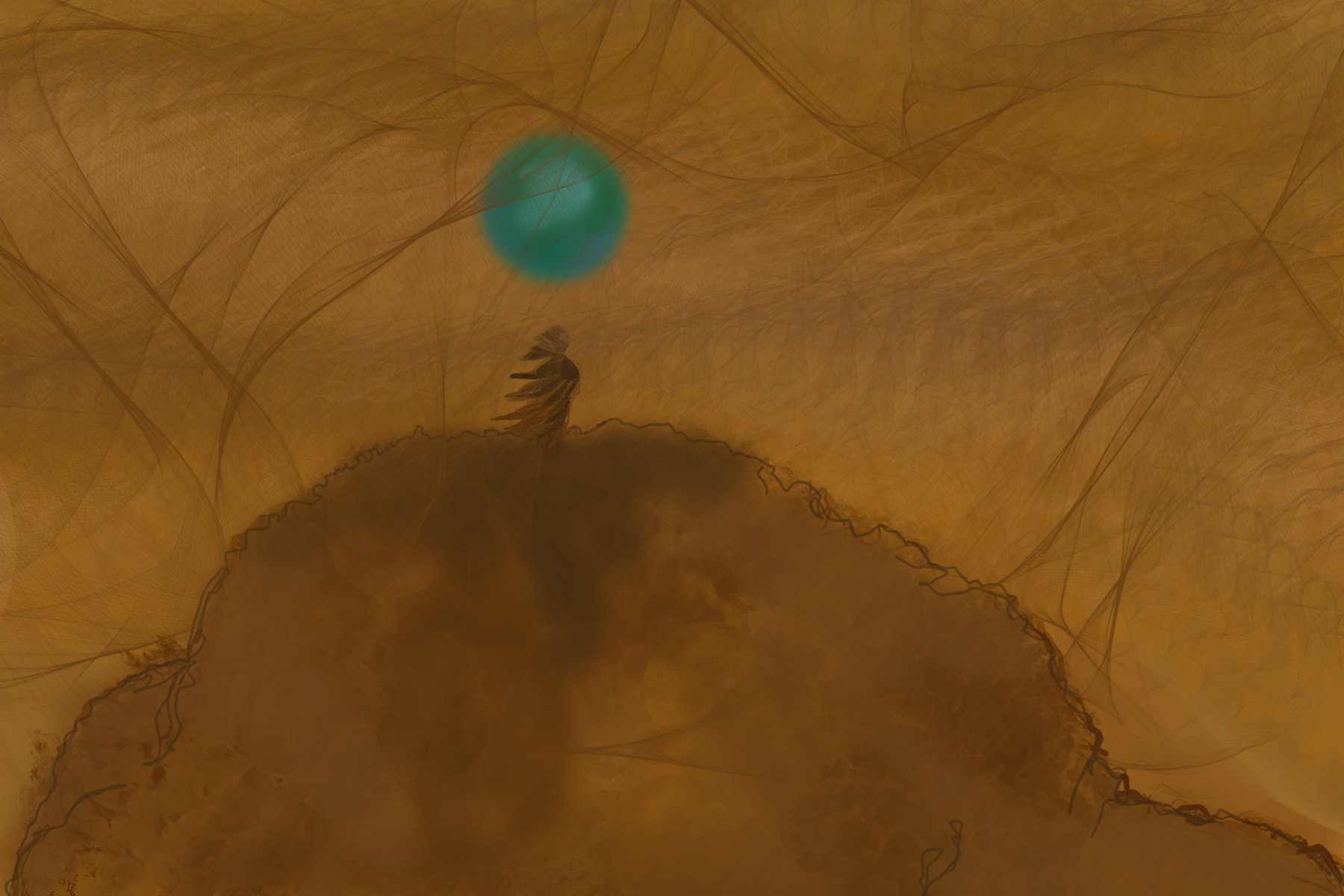In 1965, Frank Herbert released the first installment of his “Dune” saga, a 6-volume series that blends science fiction and fantasy with real-world political and philosophical concepts. The first novel, titled “Dune,” is the world’s best-selling science fiction novel. Now after several underwhelming film and television versions of the sci-fi classic, Denis Villeneuve, an Academy Award-nominated director, is releasing his adaptation next year with a stellar cast.
Villeneuve has no easy task set before him. The six novels span thousands of years, and the reader watches the rise and fall of multiple galactic empires, interplanetary corporations and wide-reaching religions. Notably, the cultures, sociology and even ecology of planets change as the books go on, and a minor action in one book proves to be monumentally important several books and eons later.
To be honest, an overview of the series would be overwhelming for both the reader and writer; the themes and motifs in the first book alone are difficult to summarize. Luckily, Villeneuve is only covering the first book, and even then, the director is splitting the adaptation into two parts.
“Dune” takes place in the ultra-distant future, considering that interplanetary travel is common and travel between solar systems is necessary for trade. The story follows Paul Atreides as he moves from his ancestral homeworld Caladan to the desert planet Arrakis. The Atreides family is popular among the common people in the empire and is therefore seen as a threat to the Padishah Emperor.
From the opening of the novel, we hear conversations about the inevitable assassination of Paul’s father, Duke Leto. After arriving on Arrakis, there is immediately an attempt on his life, and Paul comes to terms with the inevitable fall of his family and starts plotting his survival.
Although the planet Arrakis is a desert and almost entirely void of water, it is the only place that can produce “melange,” a drug that heightens one’s cognitive processing, making space travel possible. Giant sandworms roam the planet, making it dangerous to travel outside of major cities.
Villeneuve is not the first filmmaker who has attempted to adapt Herbert’s epic novel to the silver screen. David Lynch directed the first film adaptation of “Dune,” which was released in 1984. Unfortunately, the film was panned upon it release. As stated previously, the storyline of the book is already complex, and Lynch’s “Dune” was made even more confusing by the director’s experimental style. Although the book takes aesthetic influences from Middle Eastern cultures, the film went for a more stereotypical sci-fi look, complete with sleek blacks and silvers.
Granted, Lynch had no experience with the science fiction genre and his previous films, “Eraserhead” and “The Elephant Man,” appealed to the arthouse crowd. Perhaps his unconventional narrative style could have helped with Herbert’s abstract themes, but Lynch’s film felt out of character.
In recent years, the 1984 film has gained a cult following; however, this acclaim is due to Lynch’s notoriety as a director rather than the movie itself. Interestingly, a miniseries, which debuted on Sci-Fi Channel in 2000, garnered much more praise. Titled “Frank Herbert’s Dune,” the miniseries won two Emmy Awards, and the series was successful enough to warrant a sequel miniseries, “Children of Dune,” which was based on the second and third books in the saga. Despite the success of these series, both adaptations still fell short when attempting to match the eloquence of Herbert’s prose and pacing.
So, what makes the upcoming film different? The answer is simply Denis Villeneuve himself. The French-Canadian director has directed some of the most acclaimed movies in the past decade. For example, “Sicario” is a tense drama that features blunt violence and explores the morally grey areas of the War on Drugs occurring at the US-Mexico border. The protagonist witnesses terrible things happen for debatably good reasons, and Villeneuve showed his ability to create truly tense moments interlaced with political dialogue.
Moreover, “Blade Runner 2049,” the Villeneuve-directed sequel to the critically acclaimed “Blade Runner,” proves the director’s talent to craft a powerful sci-fi epic. Upon the announcement of a sequel to “Blade Runner,” “2049” was met with disdain from fans and, admittedly, the film did not perform well at the box office. Nevertheless, the movie turned out to be very thought-provoking and it satisfied fans and critics. Despite a poor financial return, Villeneuve was able to take an existing property and keep the themes consistently powerful.
Likewise, Villeneuve’s 2016 film “Arrival,” which follows a linguist as she develops a method to communicate with extraterrestrials that come to Earth, earned him a nomination for best director at the Academy Awards. “Arrival” unfolds detailed and confusing questions about human perceptions of language, meaning and time; the movie’s slow-paced atmosphere and mature storytelling align themselves with what a suitable novel-to-film adaptation of “Dune” should accomplish.
While Villeneuve alone should be enough to prove that the newest incarnation of “Dune” will be worth watching, the cast is filled with incredible acting talent. Timothée Chalamet will star as the main character Paul Atreides, and Oscar Isaac and Rebecca Ferguson will portray Atreides’ parents. Furthermore, Jason Momoa and Josh Brolin will play supporting roles to the Atreides family, Stellan Skarsgård and Dave Bautista are set to depict members of the antagonistic Harkonnen family, and Javier Bardem and Zendaya will portray Stilgar and Chani respectively.
In early 2018, Villeneuve gave an interview where he stated that his vision of “Dune” will be like “Star Wars for adults.” In 2019, it is impossible to make a science fiction film without tapping into “Star Wars,” even though “Dune” significantly influenced the original 1977 movie. The protagonists of both are stuck on a desert planet and plot to take down an empire they see as unfair. In addition, there are numerous similarities between “Dune” and “Star Wars,” but listing these comparisons would give away spoilers for both franchises; if you are curious, YouTuber “IdeasOfIceAndFire” has a video listing everything that “Star Wars” lifted from “Dune.”
Fantasy literature has one absolute giant to look up to, and that is J.R.R. Tolkien, the author of “Lord of the Rings.” There’s no debate that Tolkien is the most influential figure in the genre, but science fiction holds several writers in similar esteem such as H.G. Wells, Isaac Asimov and Philip K. Dick. Despite the inclination to cherish a singular author as the god of the genre, the “Dune” franchise has proven itself to be the standard of science fiction literature. Turning this collage of abstract theory and futuristic politics into something visual has already proven to be difficult, but Denis Villeneuve seems like the perfect candidate for the job.
















